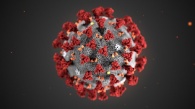CAUTION! CORONAVIRUS!
What is coronavirus? It’s a causative agent of an acute respiratory viral infection. Its manifestations include intoxication, shortness of breath and diarrhea.
People who may be at particular risk:
- Children
- Older adults 60+ years of age
- People having medical problems (bronchial asthma, chronic obstructive pulmonary disease)
- People having cardiovascular diseases (congenial heart defects, coronary heart disease, heart insufficiency)
- Pregnant females
- Medical staff
- Public transport/catering personnel
The COVID-19 virus spreads primarily through droplets of saliva or discharges from the nose when an infected person coughs or sneezes. Contact-type transmission is also possible through things, handshakes, etc.
Symptoms:
- Tiredness
- Tightness of the chest
- Sneezing
- Cough
- Sore throat
- Fever
- Shiver, general discomfort, tiredness, headache, muscular pain
- Low appetite, nausea and vomiting are possible
- Conjunctivitis is possible
- Diarrhea is possible
The disease lasts about five days on average. If fever persists, complications may occur.
Complications:
- Pneumonia, bronchitis
- Sepsis
- Otitis
- Sinusitis
- Myocarditis
- Gastrointestinal tract disorders
- Exacerbation of chronic diseases
What is to be done not to get infected?
- No panicking, no panic spreading
- Avoiding any visits to the countries where new cases of coronavirus are registered
- Avoiding contacts with people having visual signs of a bad cold and acute respiratory viral diseases (discharges from the nose, cough, sneezing, etc.)
- Avoiding visits to venues of mass confluence of people
- Washing hands as often as possible. In case one has no access to water and soap, one can use dispensable alcohol napkins or moisturizing hygienic wipes
- Touching one’s face and eye with one’s hands just washed or disposable wipes
- If possible, avoiding any contact with handles, railings, other items and surfaces in public areas and limiting handshakes, kisses and hugs
- Wearing gloves in supermarkets to prevent any immediate contact with cart handles, fridge door handles, touchpad buttons at cash desks, etc.
- Washing each food pack before opening, including bread, muffins, cookies, etc.; thorough washing of fruit and vegetables; any fruit and vegetables sold loose, rather than factory-packaged items, should be exposed to heating before consumption
- Disinfecting portable phones, smartphones, tablets, remote controls, keyboards, door handles, car steering wheels and steering levers. One can use alcohol wipes or any antibacterial alcohol aerosols and sprays.
- Wearing disposable medical masks in populated areas and public transport.
- Aeration of rooms.
- Moist mopping of rooms.
- Maintaining a social distance of 1.5 m, minimizing social contacts and meetings.
- Keeping a healthy lifestyle, having enough sleep, a well-balanced menu, and doing regular physical training exercises.
What to do not to infect other people?
- Stay at home and call your doctor in case of any sign of an acute respiratory viral infection. Minimize contacts with other people.
- Wear a disposable medical mask. If you don’t have any, cover your mouth and nose with a disposable napkin when sneezing or coughing. Use your elbow, if no napkin is available.
- Don’t cover your mouth with your hands when coughing or sneezing, as it may boost virus spreading. If it’s impossible, you must immediately wash your hands with soap or thoroughly rub them with disposable alcohol napkins or moisturizing hygienic wipes.
- Throw used wipes and napkins into litter bins.
More detailed information is available on the website of the Ministry of healthcare of the Russian Federation (https://www.rosminzdrav.ru/ministry/covid19)





